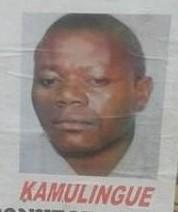Darfur: Atrocity Statistics
John Hagan and Wenona Rymond-Richmond’s Darfur and the Crime of Genocide constitutes an important, if not always entirely compelling, contribution to the study of genocide. The book inquires into (1) the dynamics of genocide in Darfur; and (2) the promise””and limits””of criminology for making sense of it. It is, in many respects, a path-breaking work. Let me explain why.
The manuscript represents the first sophisticated, book-length attempt by social scientists to come to terms with what many have called “genocide” in Darfur, Sudan. It holds its own in a field replete with competing titles by activists (Eric Reeves), anthropologists (Alex de Waal), and historians (Gérard Prunier). The principal reason for the book’s competitive edge lies in the authors’ decidedly theoretical approach (something virtually non-existing in the literature on Darfur) and innovative application of quantitative social science methodology to the atrocities at hand. This contribution alone would have warranted publication. But the book accomplishes even more.
First, the analysis is far-ranging, combining qualitative and quantitative data (including extensive interviews, for the most part conducted at the International Criminal Court in The Hague), and produces powerful insights into both the dynamics””the mechanisms and processes””of genocide as well as the methodological challenges of administering atrocity statistics. Through a fascinating (sometimes riveting) account of the rise and decline of the U.S. State Department’s so-called Atrocities Documentation Survey (ADS), the authors illuminate the politics of humanitarianism in the international system. Administered under the auspices of the State Department and the Coalition for International Justice, the ADS has been at the center of much contentious politics in the debate over the collective violence in Darfur. (Among other things, it provided the foundation for then U.S. Secretary of State Colin Powell’s address to Congress in which he declared the atrocities in Darfur to amount to “genocide.”) By delving deeply into the machinations surrounding the making of the ADS, and its subsequent politicization, Hagan and Rymond-Richmond shed bright light on an insufficiently studied, and far from trivial, aspect of genocide research””how to count the dead. While the question of atrocity statistics has been previously raised and addressed by other authors, none is entirely persuasive (let alone comprehensive). Moreover, neither of these authors has Hagan’s methodological wherewithal, which he amply demonstrated in prior work.
Second, extrapolating from their analysis of atrocity statistics, Hagan and Rymond-Richmond develop a compelling argument for complementing public health research on “complex emergencies” (a methodological approach that the authors persuasively critique for its very peculiar conceptualization and operationalization of mortality) with insights from criminological research. They show the payoff to be not merely academic, but humanitarian (and thus political) as well. Third, as already intimated, the book is an engrossing read. The dramatis personae range from Alfred Kinsey (the “sex guru”) to Sheldon Glueck (the largely forgotten criminologist and former Nuremberg prosecutor) to Colin Powell and virtually all members of the higher echelons of the Sudanese state. Fourth, and close to my heart, the authors present a solid case (in Chapter 6) for taking seriously in both law and the social sciences, the collective dynamics of genocide. More specifically, they construct an argument for studying, in the case of Darfur, what they call “collective racial intent.” Their goal is “to provide systematic criminological evidence of the transformation of individually experienced racial sparks into their deadly collective consequences.” This research program marks an important advance in the study of genocide, and dovetails, furthermore, with cutting-edge research in law on the collective responsibility of individuals for international crimes.
Notwithstanding these strengths, the book could have been improved. Although all chapters contain compelling information, occasionally the fit between the “criminology story” (my term, not theirs) and the “Darfur story” (again, my term, not theirs) could be tightened, or at least the transitions between the stories smoothed. Next, inasmuch as the authors have a firm grasp on the methodology of the social sciences (as well as criminology), they are not quite as sure-footed as far as the law is concerned. They occasionally get the law wrong, or mangle it. At one point, for example, the authors speak of “racial intent,” a neologism that is, unfortunately, left open to various interpretations. This brings me to a related substantive point. The authors, for my taste, dismiss a little too cavalierly the work of the United Nations Commission of Inquiry on Darfur. I do not think that the case for a legal determination of genocide in Darfur is quite as strong as they purport. Their conclusion appears to be a direct consequence of their non-legal approach to a legal document. It would have been best if the authors sidestepped the complex legal debate over the genocide determination. Space constraints, it seems to me, simply disallowed a sophisticated analysis that would be acceptable to an international lawyer. Why not assume that genocide was perpetrated, avoid the fray, and move on quickly to the heart of the book?
At times, the authors’ outrage at the international community’s standing by in the case of Darfur is also distracting””and not unrelated to downplaying the complexity of legal reasoning. Why would Hagan and Rymond-Richmond’s take on law (my first criticism) and morals (my second criticism) be problematic? To be sure, the book will do just fine. However, I suspect the book would have done better, especially among international lawyers, if the authors reined in their condemnation. The message of the book is powerful enough. It need not be amplified. This notwithstanding, Darfur and the Crime of Genocide does fill a large lacuna in the growing and, for the most part, not particularly sophisticated literature on Darfur and inaugurates””as the first book-length publication on the subject””the criminology of genocide.






